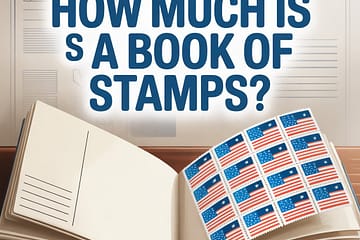In the ever-evolving landscape of internet slang and memes, the term “Fanum Tax” has carved out a unique niche. Coined by American streamer Fanum, this phrase has come to symbolize a universally relatable experience: the casual theft of food among friends. Particularly popular among Generation Alpha, the “Fanum Tax” captures a humorous aspect of social interaction that transcends cultural boundaries.
Origin of the Fanum Tax
The “Fanum Tax” originates from the antics of Fanum, a popular streamer known for his engaging and comedic content. During his streams, Fanum would often humorously refer to taking a bite of a friend’s food as collecting a “tax.” This playful concept resonated with his audience, who began to adopt the term in their own social circles. The idea behind the Tax is simple: when you’re with friends, it’s almost expected that someone will help themselves to a portion of your meal, and this act is now humorously justified as paying the “Fanum Tax.”
Why the Fanum Tax Resonates
The appeal of the Fanum Tax lies in its relatability. Almost everyone has experienced that moment when a friend reaches over and takes a fry or a bite of their sandwich without asking. Instead of viewing this as an annoyance, this Tax rebrands it as a light-hearted, even expected, interaction. This rebranding not only makes the act more acceptable but also adds a layer of humor to it.
Generation Alpha, in particular, has embraced this Tax. This generation, born into a world dominated by social media and digital interaction, is adept at creating and propagating memes. This term fits perfectly into their online vernacular, providing a shared joke that enhances social bonds. Moreover, it reflects the informal, playful communication style that is characteristic of this generation.
The Social Dynamics of the Fanum Tax
The Tax is more than just a joke; it reflects underlying social dynamics. In many ways, it reinforces the bonds of friendship and community. When friends feel comfortable enough to “tax” each other’s food, it signifies a level of closeness and trust. It’s a way of saying, “We’re close enough that I can take this without asking, and you won’t mind.”
This phenomenon can be observed in various social settings. Whether it’s at a casual get-together, during lunch breaks at school, or while hanging out at a favorite café, the Fanum Tax is a common occurrence. It serves as a subtle affirmation of friendship, a non-verbal cue that reinforces social ties.
The Fanum Tax: A Meme Feast Highlighting Food and Friendship
The internet thrives on relatable moments, and this food Tax is a prime example. Coined by streamer Fanum, who playfully “taxed” his friends’ food on camera, it’s morphed into a hilarious meme reflecting the sometimes-intrusive, but ultimately endearing, nature of friendships. Here’s a dive into the delicious world of Fanum Tax memes.
Friend or Foodie? The Art of the Snack Snatch
Fanum Tax memes often feature relatable scenarios where a friend swoops in, snatching a bite without permission. Images depict wide-eyed friends staring in disbelief as the culprit gleefully munches on a stolen fry or a half-eaten cookie. The humor lies in the unexpectedness and audacity of the “taxation,” mirroring that moment when a friend casually grabs a chip from your plate.
Beyond Food: The Broader Taxation
This tax extends beyond physical food. Memes might depict a friend “taxing” your time by asking for a favor right as you settle in for some relaxation. One popular meme format uses distracted boyfriend imagery, with the boyfriend representing the friend eyeing your coveted possession (be it a nap, a phone with a funny video, or even your peace of mind).
The Power of Self-Deprecation and Nostalgia
Fanum Tax memes often utilize self-deprecating humor. We’ve all been the victim (or perpetrator) of a food-snatching friend, and these memes allow for a lighthearted poke at our own behavior. Additionally, a sprinkle of nostalgia is often added. Memes might use old-school video game characters or childhood cartoons to represent the “taxing” friend, triggering a wave of fond memories.
The Takeaway: A Bite-Sized Celebration of Friendship
The Fanum Tax meme phenomenon highlights the playful back-and-forth of friendship. It’s a reminder that sometimes, the best moments are the ones that catch us off guard, leaving us with a laugh (and maybe a slight pang of hunger). So, the next time a friend “taxes” your snack, remember, it’s a sign of a bond that thrives on shared experiences, even if those experiences involve a bit of friendly food-related mischief.
Fanum Tax in Popular Culture
The reach of the Fanum Tax extends beyond social media and memes. It has started to infiltrate popular culture, appearing in TV shows, movies, and even advertisements. Brands targeting younger audiences have picked up on the trend, using the concept of this Tax to create relatable and engaging content.
For instance, a fast-food commercial might depict friends playfully enforcing this Tax, with one friend dramatically “taxing” another’s fries. This not only makes the advertisement more relatable but also taps into the existing popularity of the term to resonate with a younger audience.
The Future of the Fanum Tax
As with any meme or slang term, the longevity of the Fanum Tax will depend on its continued relevance and adaptability. However, its deep roots in a universally relatable experience give it a strong foundation. As long as people continue to share food and experience the casual theft of a bite here and there, the concept of this Tax is likely to endure.
Moreover, the digital nature of its spread means that the Fanum Tax can easily evolve. New variations of the term or related memes may emerge, keeping the concept fresh and engaging. The participation of influencers and content creators, like Fanum himself, will also play a crucial role in sustaining the trend.
Conclusion
The Fanum Tax is a perfect example of how internet slang can capture a simple, everyday experience and turn it into a shared joke that strengthens social bonds. Originating from the humorous antics of streamer Fanum, this term has resonated particularly with Generation Alpha, who have embraced it as part of their digital vernacular. By rebranding the casual theft of food among friends as a playful tax, the Fanum Tax transforms a potential annoyance into a symbol of friendship and community.
As the term continues to spread through memes, popular culture, and social media, its appeal shows no signs of waning. This food Tax not only entertains but also connects people, making it a shining example of the power of internet culture to shape and enhance our social interactions.
You can also read
10 Realistic Ways to Save Money on Groceries



1 Comment
Inscreva-se na binance · 26 October 2025 at 14:37
Can you be more specific about the content of your article? After reading it, I still have some doubts. Hope you can help me.